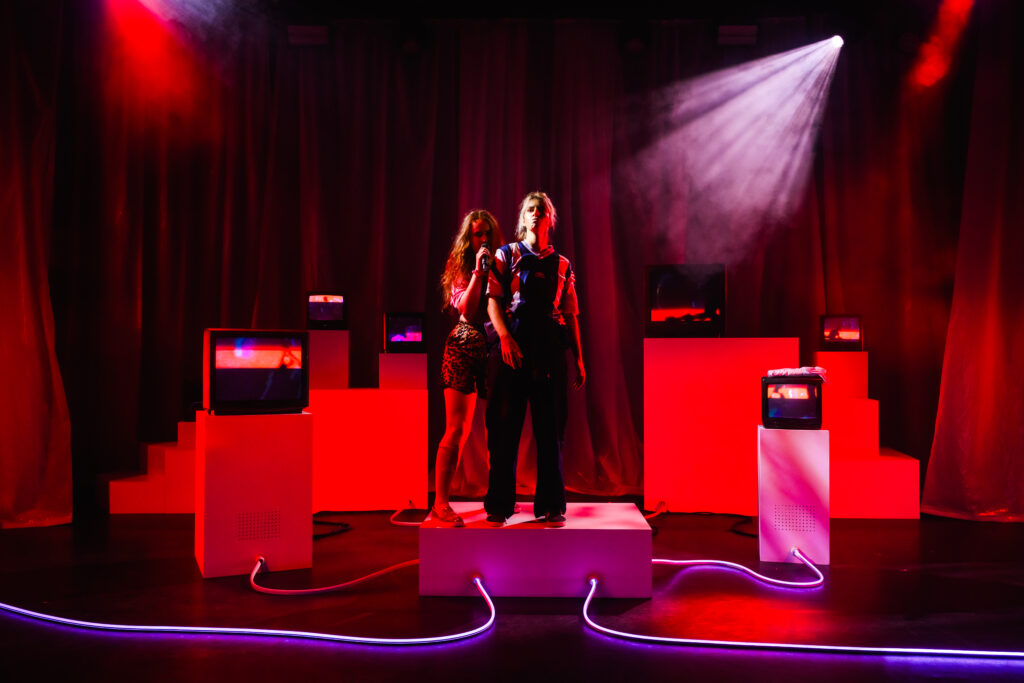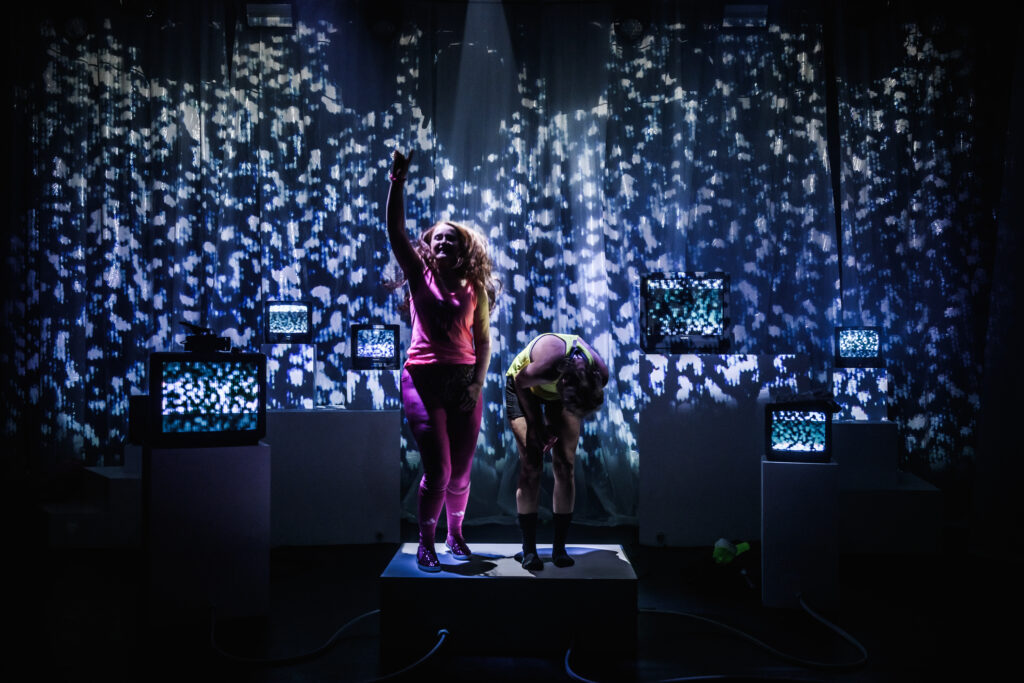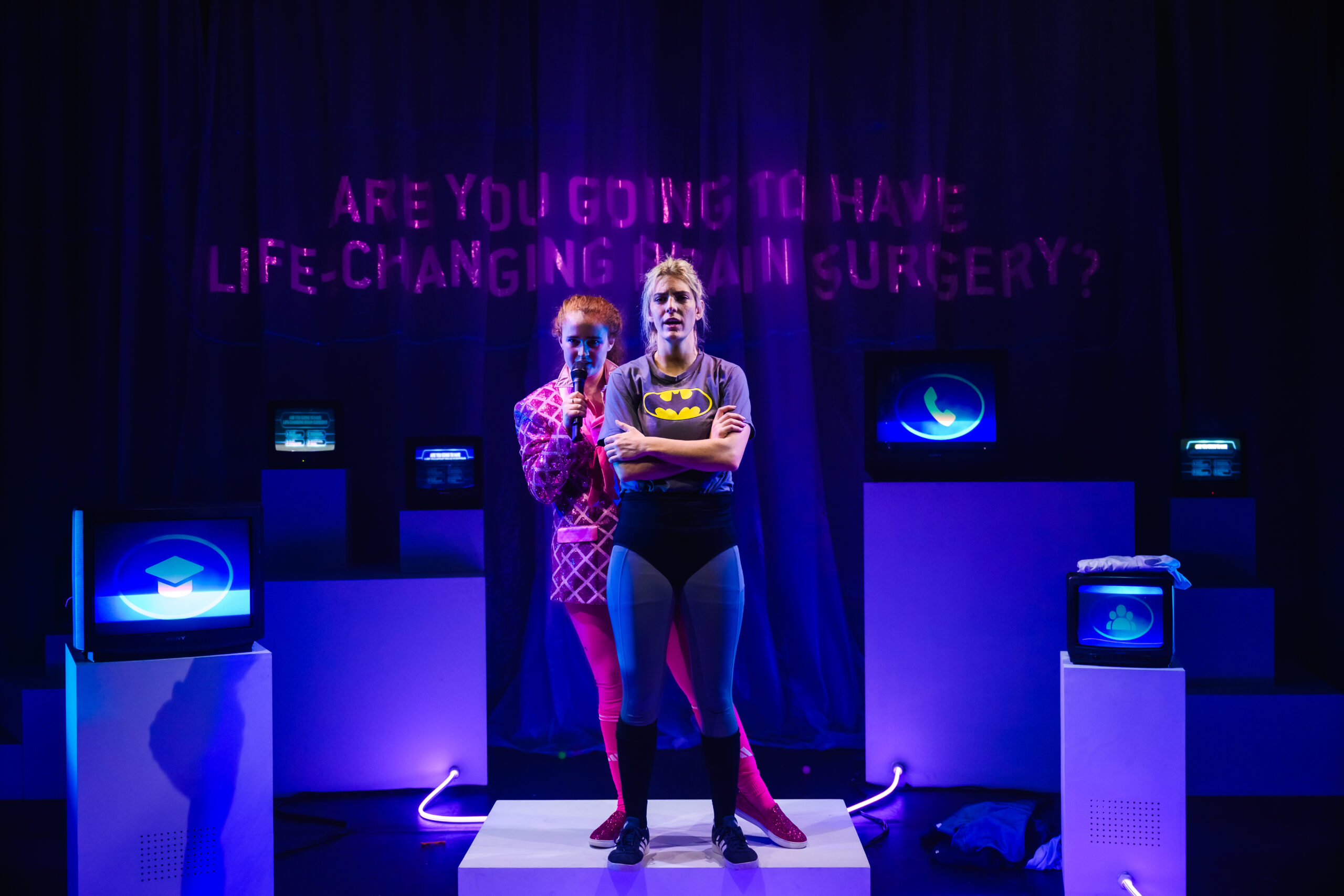Dear Annie, I Hate You – Riverside Studios, London
A powerful and playful piece of autobiographical theatre, Dear Annie, I Hate You explores what happens when your own brain turns against you.

Dear Annie, I Hate You
It’s remarkable how one moment, one conversation, or one test result can change the course of a life. In Dear Annie, I Hate You, Samantha Ipema shares her experience of receiving a life-threatening medical diagnosis, and what it taught her about identity, family, memory, and survival. After a sold-out run at Edinburgh last year, the show has transferred to Riverside Studios. A train delay kept me from press night, but I made it 24 hours later. It was well worth the wait.
At first, Dear Annie, I Hate You seems to be a solo show. Ipema plays a version of herself, telling us about college, her close relationship with her brother Micah, and the friends who orbit her life. There’s warmth and humour in how she speaks: it’s intimate, like a conversation between friends. She edges towards telling us what the doctors found on her scans. And then, just as the moment arrives, she’s interrupted.
Enter Annie. Played with electric energy by Eleanor House, Annie is not a friend or a sister. She is the aneurysm Sam has been diagnosed with. She bursts in, takes over, and never quite leaves. It’s a striking way to theatricalise something so intimate and terrifying. Annie is loud, unpredictable, and deeply charismatic. In House’s hands, she becomes the kind of chaos you can’t help watching – the threat living inside Sam’s head, given form and personality. Their dynamic drives the rest of the show.
Diagnosed at 20 with a potentially fatal brain aneurysm, Ipema uses theatre to explore what comes next. Whether to talk about it, or not. How friends respond. How some don’t. The fact that medical choices carry risks either way. I’ve navigated a diagnosis myself (at twice her age), and while my experience is ongoing, I recognised the emotional terrain.

Theatrical Exorcism
I’ve seen work about illness or diagnoses before (like this or this). I’ve seen work about trauma (here is a recent example). What makes Dear Annie, I Hate You stand out is how imaginatively it blends those subjects with a sense of play. It’s clever, layered, and unexpectedly funny. We’re inside Sam’s brain, and the staging leans into that, with screens, projections, and visual effects (set and lighting by Hugo Dodsworth, video design by Douglas Coghlan and Dan Light) that suggest neurons firing and thoughts overlapping.
The cast extends beyond the two performers. Footage of Ipema’s (real) family and friends – appears on the screens, grounding the show in lived experience. We see key moments from different points of view. It reminds us how memory is a kind of storytelling. The show isn’t about presenting a single truth. It’s about how people make sense of things, each in their own way.
Ipema performs with warmth and vulnerability. Her storytelling is generous and relatable. House’s performance as Annie crackles with chaotic charm: she’s a force of nature, and also a ticking clock. Technically, the production is strong. The sound design (by Dan Balfour) is particularly effective – immersive without being overwhelming. The direction (by James Meteyard, who also acts as dramaturg) keeps things moving, balancing pace with space to reflect. It’s a show that earns its emotional beats.
A quick note for the squeamish: some moments are graphic. It’s brief, but it packs a punch. Take Ipema up on the offer to step out for a moment, if needed.
This is a show about fear, memory, and survival. It’s a theatrical exorcism of something deeply personal. But it’s also funny, creative, and sharply observed. Ipema may not have wanted Annie, but in bringing her to the stage, she’s made something bold and worthwhile.
Salterton Arts Review’s rating: 4/5
Dear Annie, I Hate You on until 1 June 2025. More info and tickets here.

